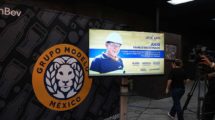Los problemas de la vida no son como los capítulos de una serie de televisión. Hace poco mi esposa me invitó a ver un programa, se trataba de una serie sobre un hospital.
Al verlo recordé el comentario de un querido profesor: “Los problemas no vienen en capítulos, no son estancos cerrados”.
Casi todos los programas de TV tienen la siguiente estructura en términos de porcentajes según el tiempo que consumen:
1ª parte: se lleva el 25% inicial e incluye el planteamiento del problema y la presentación de los protagonistas del capítulo.
2ª parte: ocupa 50% del tiempo y consiste en el desarrollo de la problemática.
3ª parte: consume el último 25% y en ésta se resuelve el problema y todo queda listo para la trama del siguiente capítulo.
En la realidad claramente esto no sucede así. Cuando llegamos a la oficina para realizar las labores diarias, no llegamos sin ningún problema para sentarnos a esperar a que aparezca uno, acto seguido definirlo, pensar cómo atacarlo y resolverlo antes de irnos para estar listos para las dificultades del día siguiente (en el fondo ésa es la propuesta de la mayoría de los programas de TV).
Tal y como afirmaba mi profesor, el Dr. Jorge Morán: “No hay gestión final”. Es decir, lo que hace uno, más que ser un proyecto finito y acabable, es un proceso que no tiene un fin determinado y que se modifica, exigiéndonos y planteándonos retos diferentes. En este sentido, un empresario pasa por diversas etapas de la empresa –arranque, crecimiento, madurez y declive –y en cada una de ellas requerirá habilidades diferentes; además habrá algunos proyectos que, al tomar vida y al transformarse, le presentarán distintos retos y le exigirán distintas capacidades y precisamente por eso, porque no se “cierran” esos problemas, es que podemos afirmar que no hay gestión final.
Ver la realidad tal cual es (se requiere objetividad y humildad)
Carlos Llano afirma que ambas virtudes son indispensables para conocer la realidad: “Ver clara la situación en que se encuentra la persona” y a partir de ese conocimiento decidir qué hacer.
La objetividad se define como “la cualidad de elaborar juicios u opiniones con imparcialidad, tomando en cuenta sólo la realidad de los hechos y sin permitir que intervengan las emociones o los intereses de uno”. Y la humildad se define como: “ser objetivo con uno mismo”. Y después de conocer bien las cosas como son es cuando viene el momento de la decisión, ahora sí, decidir cómo se va a transformar la realidad.
Así es la labor de dirección, donde más que tener una sensación de haber terminado algo, debemos contentarnos y estar satisfechos en tener la sensación de avanzar y si vamos obteniendo logros significará que estamos cumpliendo.
Por eso cuando me invitan a ver programas de televisión comunes y corrientes no puedo evitar pensar que la realidad es mucho más compleja y no se circunscribe a plantear, desarrollar y resolver problemas en el reducido espacio de un episodio de la serie.
Por: Carlos Ruiz González
________________________________________________________________
There is No Final Managerial Decision
Life problems aren’t as the episodes of a TV show. Recently, my wife invited me to watch a TV show with her; it took place in a hospital. As I was watching it, I remembered something a dear professor told me, “Problems don’t come in chapters; they aren’t self-contained parts.” Almost all TV shows have the same structure in terms of percentages of time consumed:
First part: It takes the initial 25% and includes the exposition of the problem and the introduction of the main characters in the episode.
Second part: It takes 50% of the time and consists on the development of the problem.
Third part: It takes the last 25%, and it’s when the problem is resolved and everything is left ready for the following episode’s plot.
In reality, this clearly isn’t how it happens. When we arrive at the office to do our daily chores, we don’t arrive free of problems just to sit down and wait for one to appear so that we can define it, think about how to approach it, and solve it before leaving readying ourselves for the next day’s struggles—ultimately, that’s the proposal of most TV shows.
Just as my professor, Dr. Jorge Morán, used to say, “There’s no final managerial decision.” The actions we take—more than being a finite project with an end—are part of a process without a certain purpose and one that can be modified, demanding from us and exposing different challenges. In this sense, an entrepreneur goes through the different stages of the business cycle—start up, growth, maturity, and decline—and each one of these will require different abilities. There will also be projects that, as they rise and transform, will present different challenges and demand different capabilities; and precisely being that those problems are not “finalized,” we can affirm that there’s no final managerial decision.
Perceive reality just as it is (objectivity and humility are required)
Carlos Llano states that both virtues are essential to understand reality: “Look clearly at the person’s situation” and with that knowledge decide what to do.
Objectivity is defined as “the quality of making impartial judgments or opinions, taking into consideration only the actual facts without allowing one’s emotions or interests to interfere.” And humility is defined as “being objective with oneself.” And after knowing how things really are, the moment to decide arrives and now is the time to decide how reality is going to be transformed.
This is management’s job, where more than experiencing the feeling of having finished something, we need to be happy and satisfied in feeling that we are moving forward, and if we accomplish goals, we are fulfilling our duties.
That’s why when I get invited to watch ordinary TV shows, I cannot avoid thinking that reality is much more complex and isn’t circumscribed to outline, develop, and solve problems in the reduced time of a TV show episode.
By Carlos Ruiz González

























Agregar Comentario